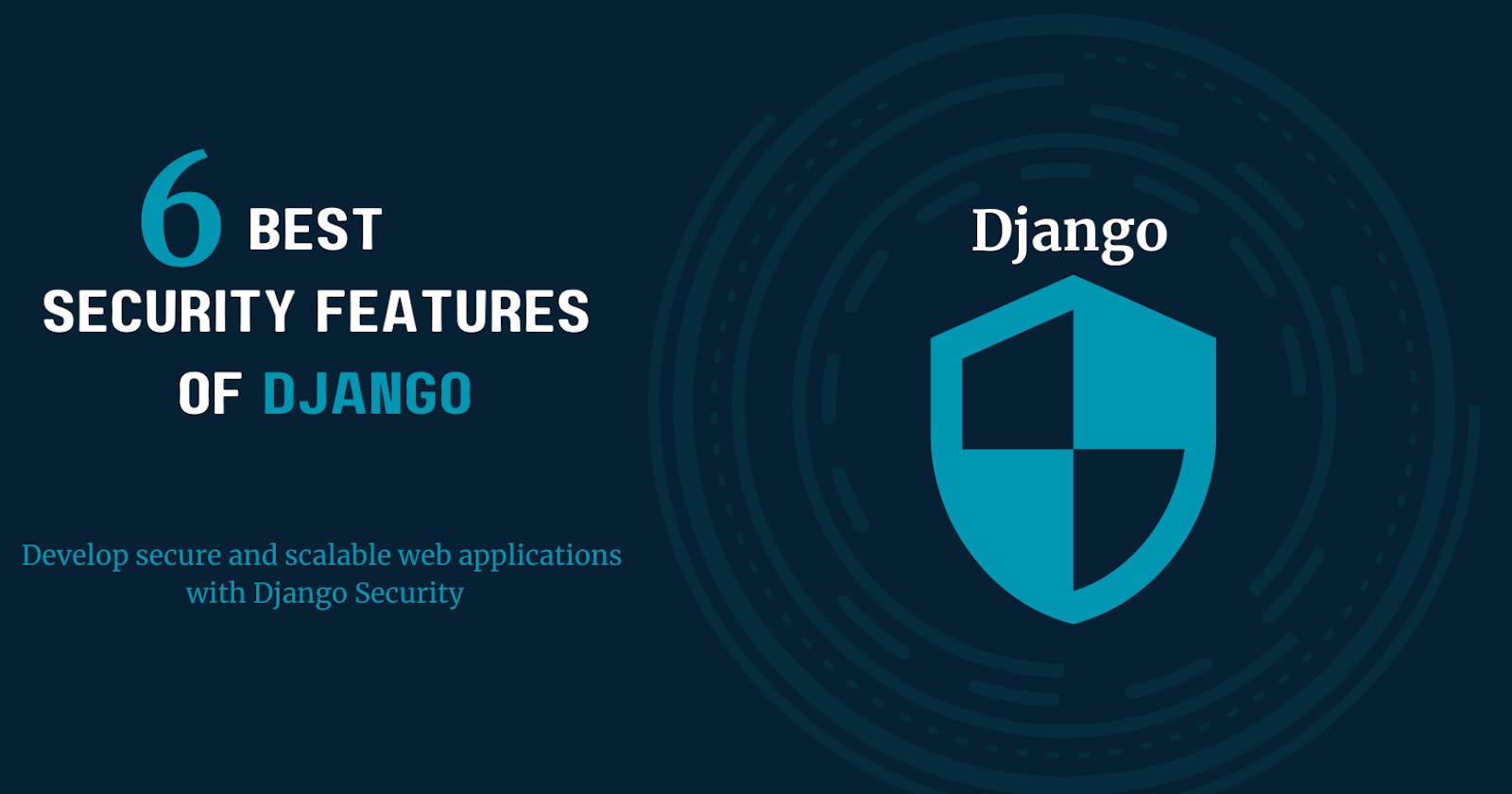6 Best Security Features of Django for Building Secure Web Applications
Protect Your Django web applications by implementing Django built-in security and generate to millions of users.
The Django framework is robust, open-source, and well-liked, frequently used to create secure and scalable web applications. For every application, security is one of the main issues, and Django has several features built in to assist engineers in making secure and scalable web applications.
Today, every company wants a secure and hassle-free application, and that requires a security wall which is an essential component, but it depends on how well the web service works. Sometimes businesses have more concerns about multi-factor authentication than other businesses. Even though Django has a lot of built-in security measures, they are sufficient and allow developers to protect the applications. Therefore, in this article, we will walk through some of the outstanding security features provided by Django, together with the most promising practices for building secure applications.
Security features of Django for Securing Web Applications
Whether it is an application or a business firm, both require security protection from unauthorized persons. Therefore, your Application needs to be well-secured for the development of business. This Django security feature provides it all. Let's have a look at them.
Cross-site scripting protection
Web applications are being attacked by cross-site scripting, which is a main concern for every application. Django comes with built-in CSRF protection by adding a hidden CSRF token to all forms that submit data to the server and creates a wall before an attack. This token is checked on the server side to ensure that requests are coming from an authenticated user and not from an unwanted script or source.
Moreover, Django uses a built-in render() function for rendering HTML when the variables are passed from the templates.
Password management
Any web application must be securely managed with its passwords to function well and keep it secure. To ensure that these credentials are saved safely and are not readily compromised, therefore, leveraging Django's built-in password management is a key element.
Django stores passwords in hashed format by default; it is difficult to decode the password even if a database is stolen. In order to assist in ensuring that passwords are secure and cannot be readily guessed or hacked, Django also offers features like password complexity requirements, password expiration, and password reset capability.
Cross-Site Request Forgery protection
Another typical security flaw in web applications is Cross-Site Request Forgery (CSRF). Django's CSRF protection creates a special token for each form and offers a built-in defense against CSRF attacks. Therefore, the above token needs to be verified on the server side to identify whether the request is real and not a CSRF attack.
The CSRF middleware, which will automatically generate and validate CSRF tokens for all forms in your application, can be included in your middleware stack to provide CSRF protection in your Django application.
User authentication
Django provides a robust authentication framework that supports various authentication backends, such as username/password authentication and third-party authentication (e.g., OAuth). This framework includes features such as password resets, account locking, and rate limiting to prevent brute-force attacks.
Access control
Another important and best component of web application security is access control. Django's authentication and authorization system has built-in access control features. Therefore, using this feature, users can get access to user registration and user authentication and make a reset when forgetting a password is required, which is supported by built-in Django.
This feature offers some unique authentication methods, maybe third-party authentication such as SAML and OAuth. This can be used to grant only authorized users or groups access to sensitive resources or functionality.
Database security
There are different database security, such as MySQL, PostgreSQL, and SQLite, which Django supports for better backend performance and security. This database serves different features to make strong security and protect your business data from unauthorized persons.
Summary
Django has provided various built-in security features for developers to deliver their clients secure and safe web applications. Moreover, business experts should note that developers must follow the best practices for developing secure web applications. Therefore, when you go to hire Django developers, the best thing is to take a consultation from a software development company, and later hire experienced and well-skilled Django developers who can develop a secure and scalable application by following the best practices of Django security.
